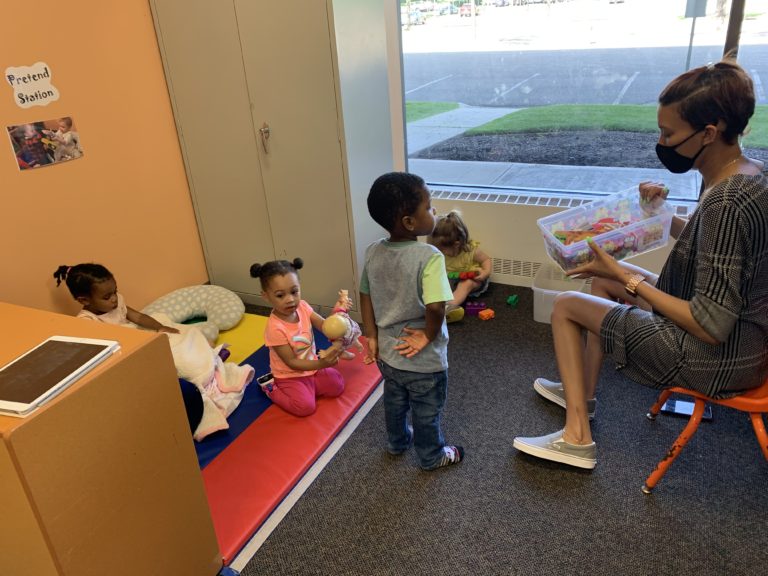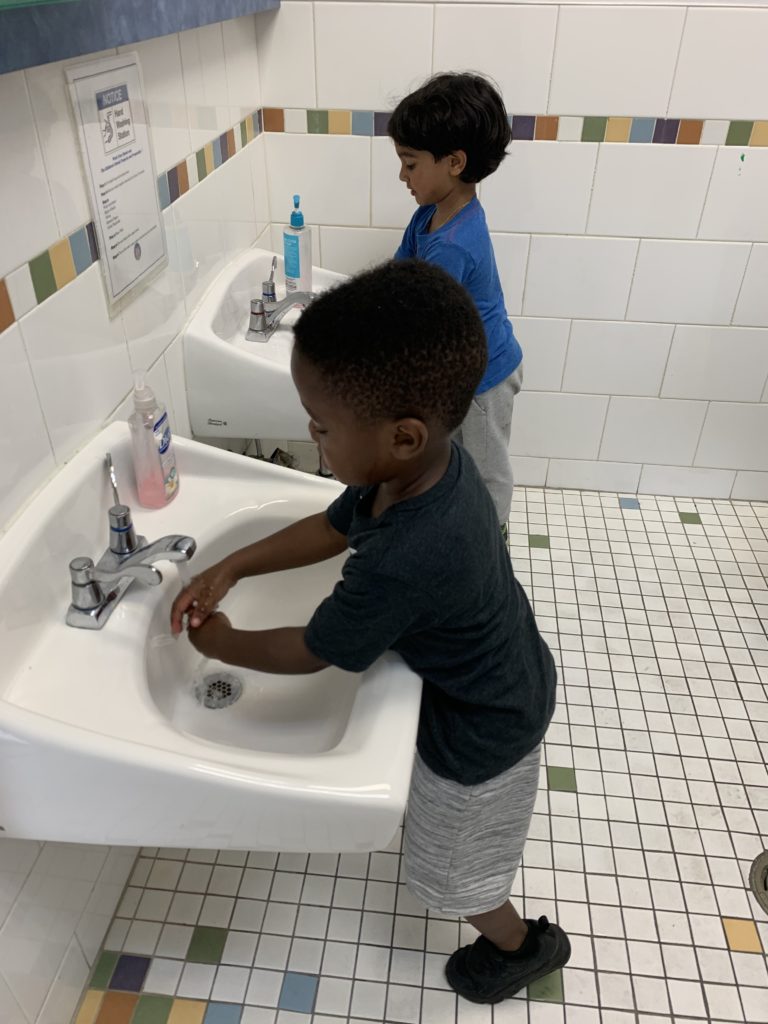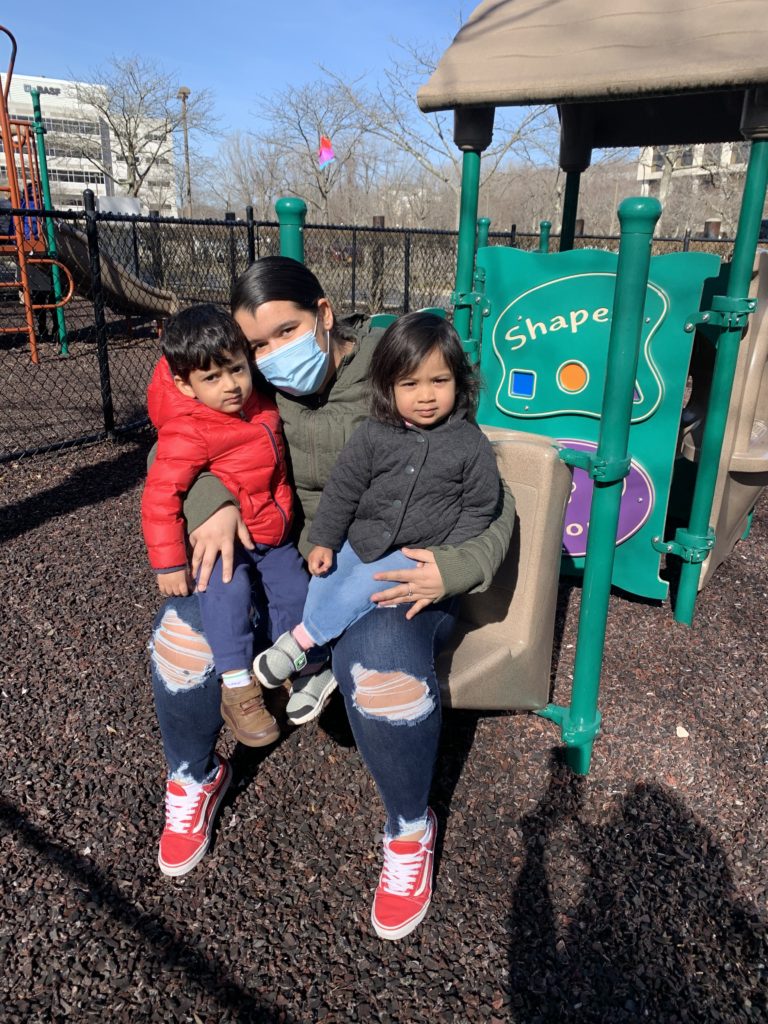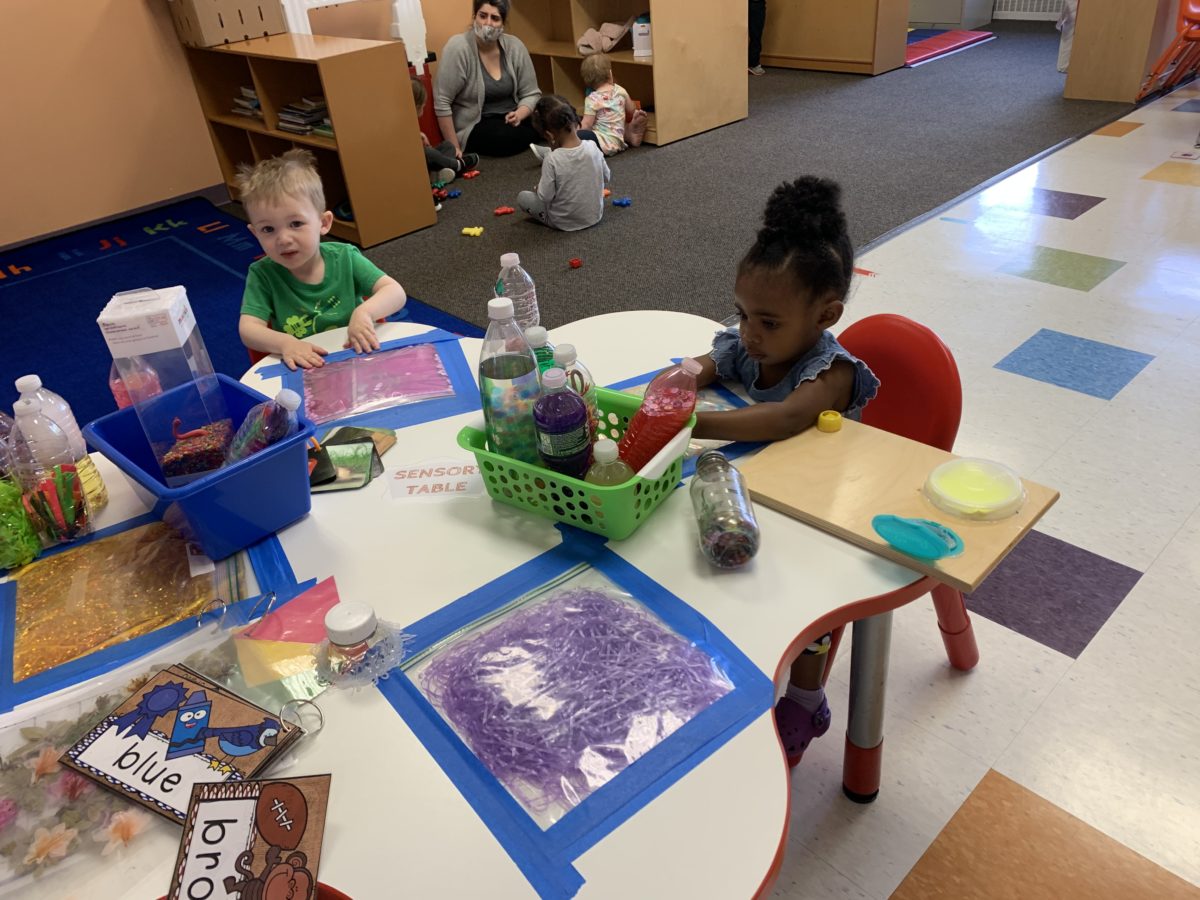Early Childhood Education During COVID and Beyond
There are so many stories of early childhood education during COVID to celebrate. Many daycares never closed. Many others found ways to maintain relationships and engagement with preschoolers, toddlers, and even infants remotely. Discovery Village did both. We remained open for our essential workers, while providing remote learning for children whose families were sheltering in place.
Something surprising happened in the process. We not only navigated through COVID. We’ve gotten better!

Early Childhood Education During COVID: Programs That Never Closed


It was almost exactly one year ago that I first sensed we were experiencing the beginning of something new for early childhood education.
There were only six children present, ranging in age from 18 months to five. Children saw new possibilities for a farm they had built out of a cardboard box.
One child took the road they had used to bring supplies to the farm. He turned it into his very own “highway to happiness.” Any person could drive on the road. At the end they would find arrive anyplace they wanted to vacation, real or imagined.
Two children took the farm itself and redesigned it. They built a carwash. Now cars would be super clean before driving down the highway to happiness. They found a way to funnel real water into the carwash to wash the cars.
Three children, younger toddlers, were also interested in animals, cars, and water. They took individual bins filled with soapy water and gave baths to the toy animals that had just earlier that day lived in the farm.
Hand-washing
The focus on washing, both cars and animals, came from our constant hand-washing. Between each and every activity, and at minimum every half hour, children washed their hands. They delighted in splashing in the water, savoring the feel of the running water and soap suds. Hand-washing had become the punctuation mark of our days, offering a moment of respite between each and every activity.
In the following weeks, our children’s curiosity about water brought us in many new directions. We explored the depths of the sea, and designed our very own aquarium. We looked to the rain clouds above, showering our world with water, and built our own cloud observatory. We marveled at the power of water to nourish plants and people, and tended to our very own indoor garden. Losing ourselves in our playful learning, the outside world melted away.
Children showed us the ways to navigate through COVID; playfully and focusing on the positive.
Early Childhood Programs That Went Remote: Putting Relationships at the Center
I will never forget the moment, very early in the pandemic, that I heard about early childhood education programs offering remote learning. At first, I thought teaching toddlers and preschoolers remotely was perhaps the most ridiculous educational idea I had ever heard. Within a week, Discovery Village was offering remote learning for preschoolers, toddlers, and even infants. Many childcare and preschools had gone entirely remote, at least for several months.
The learning included live video sessions via Zoom, videos teachers created, and packets of activities to do at home. The live sessions included Spanish, sign language, and lots of exercise and movement. It changed frequently to keep children interested. At the core of the experience was being together, even while physically distanced. We always knew relationships and care are at the heart of early childhood. We found ways to strengthen those relationships even while physically distant.
The Possibilities that Lie Ahead
While COVID forced us to change, we had the choice to change for the better. So many of us id. The creativity that emerged in early childhood can be a beginning, offering possibilities for improving the quality of learning and care. It is a conversation many are having. I welcome you to join in and reflect on what we have learned through these challenging months, and what we will intentionally bring with us moving forward.

